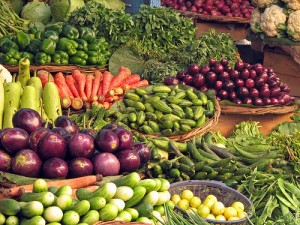Eating too Many Processed Foods?

Snack Box Diet Vegetables
Could it be that we really are eating too many processed foods?
I would say yes!
But what is the alternative?
Is getting back to nature one of them?
For a long time the question has been posed that staying along the lines of “Can eating like Neanderthal or an ape improve our health?”
When we see how many diseases there are apparently connected to high cholesterol and blood pressure – we’re told that the numbers of these diseases are on the increase day by day. It does rather raise the issue about whether or not our current western diet is actually a major factor or cause, of these cardiovascular diseases such as hypertension, stroke and diabetes.
Paying the Price
That of course leads us onto the second question: “Are we paying the price for eating all these processed foods?”
Dietician Lyn Garton was responsible for taking ten volunteers on a journey back to our culinary roots, where she took a leaf out of our ancestors’ cookbooks, just to see what impact a comparatively short few days of eating much healthier food would have on reducing the risk of fatal illnesses, as mentioned above.
At the end of the test, biological markers for cholesterol and hypertension were measured to see how successful this test was. After the twelve day test, the groups total cholesterol fell by over 23%, and there was a marked decrease in the amount of sodium levels. From all of this, we can conclude that simply by introducing changes into our diet, by moving away from processed foods towards more healthily organically based foods, our health can be dramatically improved.
All the volunteers used in this test were chosen because they had above-average levels of cholesterol, according to the doctors, ranging from between 5 and 6.8. Also the test group confessed that they were eating diets which had very few fruits and vegetables, and were probably very high in trans-fats and many of them were confessing a life of fast, processed food.
Now obviously, the dramatic results from this test were slightly skewed because the volunteers were following a diet that had 5kg of fruit and vegetables a day, which with a balanced controlled carbohydrate diet would prove unnecessary, and in fact the pressures of our modern lives would probably make this totally impractical.
The Value of Good Vegetables.
However, what it does show is that if you want to lower your triglycerides levels then cutting down on processed foods and re-introducing vegetables, nuts and certain fruits into your diet would make that possible.
Here is just a small sample:
- Apples
- Apricots
- Asparagus
- Avocado
- Bananas
- Blueberries
- Broccoli
- Cabbage
- Carrots
- Cashews
- Cauliflower
- Cherries
- Courgettes
- Dates
- Figs
- Grapes
- Hazelnuts
- Honey
- Kiwi fruit
- Mange toutes
- Mangoes
- Melons
- Mushrooms
- Olives
- Paw-paws
- Peaches
- Peanuts
- Pears
- Peas
- Peppers
- Plums
- Radishes
- Raspberries
- Satsumas
- Spring Onions
- Strawberries
- Sugar-snap peas
- Summer Cabbage
- Tomatoes
- Walnuts
- Watercress
To name but a few!
Many of these are allowed on The Snack Box Diet and would add a tasty addition to what you may be eating already.
As we’ve said before, variety is something to aim for in any diet – the more the merrier.


